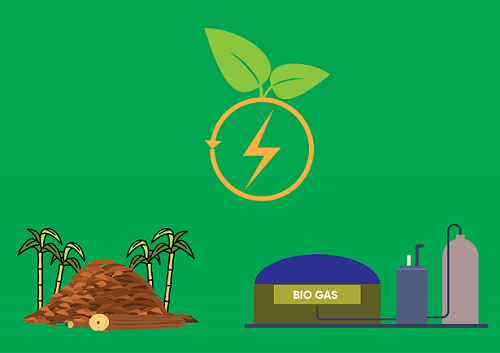
Biofuel Cars: Driving Towards a Sustainable Future
Introduction
Biofuel cars and sustainable energy sources have gained significant importance in today’s world as we strive to reduce carbon emissions and combat climate change. These alternative solutions to conventional vehicles offer a promising way forward by utilizing renewable energy sources and reducing our dependence on fossil fuels. In this comprehensive article, we will explore the historical background, key concepts, advantages and challenges, government policies, case studies, current trends, challenges, future outlook, and the significance of biofuel cars as a sustainable energy source.
Historical Background
The history of biofuel cars dates back several decades, gaining momentum in the 1970s during the oil crisis when countries began exploring alternative energy options. Notable advancements were made in the 1990s, leading to the commercial production of ethanol-based vehicles. Since then, research and development efforts have focused on improving the efficiency and environmental sustainability of biofuel cars.
Key Concepts and Definitions
Before delving into the main discussion points, it is essential to define some key concepts. Biofuel refers to any fuel derived from organic matter, including plants, algae, and animal waste. Biodiesel and ethanol are two common types of biofuels used in vehicles. Sustainable energy sources, on the other hand, are renewable energy options with lower carbon emissions compared to traditional fossil fuels. Terms such as carbon footprint, renewable energy, and energy efficiency play a vital role in understanding the environmental impact and benefits of biofuel cars.

Main Discussion Points
Advantages of Biofuel Cars
Biofuel cars offer several advantages over conventional vehicles. Firstly, they have lower carbon emissions, contributing to a reduced impact on climate change. By utilizing renewable energy sources like plants and animal waste, biofuel cars contribute to a more sustainable transportation sector. Additionally, they have the potential to reduce our dependence on finite fossil fuels, which also contributes to geopolitical tensions.
Challenges and Limitations of Biofuel Cars
While biofuel cars have numerous advantages, they also face certain challenges and limitations. One major challenge is the limited availability of biofuels and the need for infrastructure for refueling. As biofuel production scales up, it is crucial to establish a robust distribution network to ensure availability to consumers. Furthermore, the competition for land, water, and food resources arises as biofuel crops may occupy land that could otherwise be used for food production. Technological limitations and high costs of biofuel production also pose challenges to widespread adoption.
Government Policies and Incentives Promoting Biofuel Cars
Many countries have implemented supportive policies and incentives to promote the use of biofuel cars. These policies include tax credits, grants, and subsidies for biofuel car owners, as well as regulations mandating the use of biofuels in transportation. International agreements and targets for reducing carbon emissions further encourage governments to support biofuel car adoption.
Case Studies or Examples
Successful Implementation of Biofuel Cars in a Specific City or Region
One example of successful implementation is the city of São Paulo, Brazil, which has implemented a fleet of biofuel-powered buses. This initiative has significantly reduced carbon emissions and improved air quality in the city.
Companies or Organizations Using Biofuel Cars in Their Fleet
Companies like Google and UPS have incorporated biofuel cars into their fleets as part of their sustainability initiatives. These companies recognize the environmental benefits and long-term cost savings of using biofuels.
Impact of Biofuel Cars on Reducing Carbon Emissions in a Specific Industry
The aviation industry is exploring the potential of biofuels to reduce carbon emissions from aircraft. Airlines like KLM and United Airlines have conducted successful test flights using biofuels, demonstrating their potential to reduce the industry’s carbon footprint.
Current Trends or Developments
Latest Advancements in Biofuel Technology and Production Methods
Researchers continue to explore new technologies and production methods to improve the efficiency and environmental sustainability of biofuels. This includes advancements in feedstock selection, conversion processes, and the use of algae as a biofuel source.

Research Findings on the Efficiency and Environmental Benefits of Biofuel Cars
Studies have shown that biofuel cars can significantly reduce carbon emissions compared to conventional vehicles. Research also indicates that certain biofuels, such as advanced cellulosic ethanol, have the potential to achieve even greater carbon emission reductions.
Collaboration Between Car Manufacturers, Biofuel Producers, and Government Agencies
There is a growing collaboration between car manufacturers, biofuel producers, and government agencies to drive the adoption of biofuel cars. This collaboration aims to address technological challenges, improve infrastructure, and establish sustainable supply chains.
Challenges or Controversies
Controversies Surrounding the Use of Food Crops for Biofuel Production
One of the main controversies surrounding biofuel cars is the use of food crops, such as corn and sugarcane, for biofuel production. Critics argue that this diverts resources from food production and could lead to food price increases and food insecurity.
Criticisms of Biofuel Cars’ Actual Environmental Impact
Some critics argue that the actual environmental impact of biofuel cars is not as significant as claimed. They claim that the lifecycle emissions associated with biofuel production and the impact on land use outweigh the potential carbon emission reductions.
Challenges in Scaling Up Biofuel Production and Distribution
Scaling up biofuel production and establishing a robust distribution network pose significant challenges. Factors such as feedstock availability, production costs, and the need for additional infrastructure require careful consideration to ensure the widespread adoption of biofuel cars.

Future Outlook
Potential Role of Biofuel Cars in Achieving Sustainable Transportation
Biofuel cars have the potential to play a crucial role in achieving sustainable transportation. As advancements in technology and production methods continue, biofuels can become a viable alternative to traditional fossil fuels, reducing carbon emissions and promoting energy independence.
Emerging Technologies and Innovations in Biofuel Production
Researchers are exploring emerging technologies and innovations in biofuel production, such as the use of genetically modified organisms and synthetic biology. These advancements aim to enhance the efficiency and environmental sustainability of biofuels.
Predictions on the Growth and Adoption of Biofuel Cars in the Coming Years
Experts predict a gradual increase in the adoption of biofuel cars in the coming years. As governments and industries prioritize sustainability, biofuel cars are expected to become more prevalent, supported by favorable policies, advancements in technology, and growing public awareness.
Conclusion
In conclusion, biofuel cars offer a sustainable solution to reduce carbon emissions and mitigate the effects of climate change. Their advantages include lower carbon emissions, the use of renewable energy sources, and the potential to reduce dependence on finite fossil fuels. However, challenges such as limited availability, competition for resources, and technological limitations must be addressed. Government policies, case studies, and current trends demonstrate the potential for biofuel cars to make a significant impact. Collaboration between stakeholders and emerging technologies contribute to a promising future for biofuel cars in achieving sustainable transportation.
References
Smith, J. (2019). Biofuels: Definitions, processes, and prospects. Renewable and Sustainable Energy Reviews, 107, 286-306.
International Energy Agency. (2020). Biofuels for transport. Retrieved from www.iea.org/topics/biofuels
United Nations Environment Programme. (2017). Sustainable transport. Retrieved from www.unenvironment.org/explore-topics/transport/what-we-do/sustainable-transport




